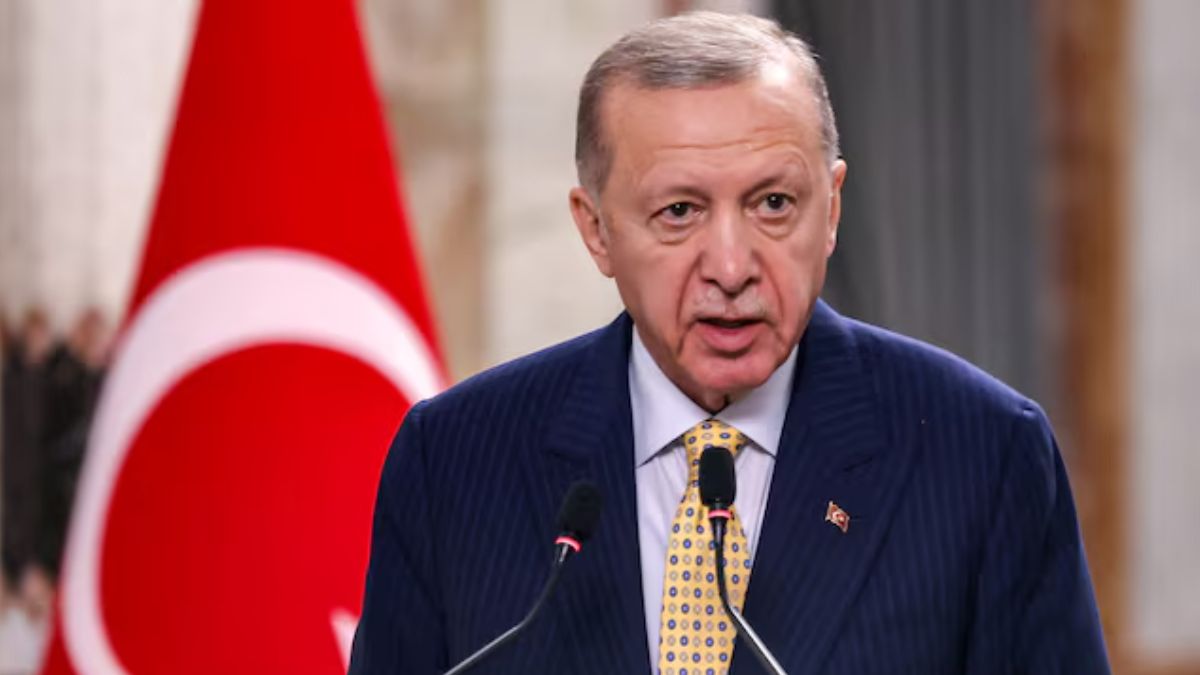Recep Tayyip Erdogan, 70, has been Turkey’s President since 2014. Before that, Erdogan was a minister for around 11 years. His party, Justice and Development Party (AKP), is socially conservative with emphasis on Islamic values, and Erdogan regularly mixes his nationalist rhetoric and Islamic ideology.
Erdogan, in the beginning, portrayed himself as a moderate, pro-Western Islamic democrat, but over the years, he has been seen to be emphasising the role of Islam both within and outside politics. Yet, whilst he has challenged Mustafa Kemal Pasha’s idea of secularism in Turkey, he hasn’t sought to dismantle it completely.
Erdogan’s relationship with Russia is both complicated and pragmatic. He has cooperated with Russia on power projects, army purchases (e.g., S-400 missile system), and in Syria. Still, he has massive differences with Moscow, whether it was the 2015 Russian jet downing issue or Erdogan accusing Moscow of managing the Libya war “at the highest level”.
Why are Turkey and Erdogan in the limelight?
Erdogan’s Turkey has made a formal bid to join the BRICS, originally comprising Brazil, Russia, India, China and South Africa.
Formed in 2006, BRICS has grown over the years with several new countries joining it. As it has expanded, with new members such as Argentina, Egypt, Ethiopia, Iran, Saudi Arabia, and the United Arab Emirates invited to be a part of the group this year, BRICS has emerged as an effective geopolitical counterweight to the West.
The expansion and the development of this grouping symbolise a huge shift in the international order that has prevailed since the end of World War II. This displays the broader style of strength diffusion from the West to rising economies, especially in Asia.
Impact Shorts
View AllTurkey’s bid to join BRICS is massive because if it succeeds, it will become the first NATO member to join this organisation.
Turkey’s geographic position straddling Europe and Asia has made it an integral NATO ally, mainly during the Cold War. It controls entry to the Black Sea and borders numerous key regions, including the Middle East and the Caucasus.
Turkey has been a key member of NATO. It keeps the second-largest navy in NATO after the United States. It has participated in several NATO operations, along with peacekeeping missions in Kosovo and Afghanistan. It has hosted NATO missile defence systems, with early warning radar. It has additionally been a key part of NATO’s counter-terrorism efforts.
What does this mean for India?
Let’s first take a look at the prospect for India’s ties with Turkey. The two nations preserve diplomatic ties and interact at a high level, though there have of late been some reasons for discomfort and anxiety between Delhi and Ankara.
Turkey’s help to Pakistan on the Kashmir issue has caused friction between Delhi and Ankara. Turkey has raised the Kashmir issue at a global forum like the UN. This has dampened the relationship between India and Turkey.
Turkey’s attempt to be a part of BRICS comes at the time of a great geopolitical churn. The ongoing Russia-Ukraine war is more than 900 days old. After Hamas attacked Israel on October 7, Israel’s offensive in Gaza has continued — and the dangers of escalation involving Iran and others are very much real. And then there is the presidential elections in the United States in November this year.
India has for long adopted a non-aligned or, as some would say, multi-aligned overseas policy. It balances a cordial relationship with Russia while retaining its strategic ties with the US. Prime Minister Narendra Modi has visited Russia and Ukraine and enjoys the trust of the leadership of the two countries. India’s relationship with China is challenging, and yet it remains an integral part of SCO and BRICS.
Amid all this, it remains to be seen how Turkey’s entry into BRICS will affect this grouping.
The writer is an Indian technocrat, political analyst, and author. His social media handle is @prosenjitnth. Views expressed in the above piece are personal and solely those of the author. They do not necessarily reflect Firstpost’s views.


)
)
)
)
)
)
)
)
)



